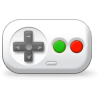
Daniel15
-
Posts
19 -
Joined
-
Last visited
Content Type
Profiles
Forums
Articles
Downloads
Gallery
Blogs
Posts posted by Daniel15
-
-
1 hour ago, Trevo525 said:
I believe WPF is the holdup. They can't rid of WPF because it's what allows the easier themes. It would also change how themes work so they wouldn't be cross-compatible.
I read in another post somewhere on the forum that Launchbox for Linux will be based on Launchbox for Android. My understanding is that they're all .NET. The Android version uses Xamarin on Android, with eventual plans to move to MAUI once it's stable. The Android version doesn't have deep dependencies on a particular view library (compared to the Windows one which is deeply integrated with WPF), which makes it easier to port that version to other platforms. Core code is shared across all of them.
-
 2
2
-
-
I'm encountering a very strange issue when streaming from my PC to my Nvidia Shield using Nvidia GameStream. The issue is that the BigBox window appears very tiny in the top left of the screen.
I've got an ultra widescreen monitor with 5120x2160 resolution, but I set it to 1920x1080 when streaming, which has worked in the past.
Here's a video showing what's happening (sorry for the video quality; I was holding my phone to record as well as an Xbox controller to control Launchbox):
All the emulators are fine (tested with Dolphin and MAME in the video); it's just BigBox that appears small. I've tried closing and relaunching it. On the Shield, I've tried both the regular Nvidia Games app as well as the Moonlight app on my Shield (I generally have better luck with the Moonlight app). I'm not sure what else to try.
I'm on Launchbox 11.14 with a Ryzen 9 5900x + a GeForce GTX 1080 Ti
Any ideas?
Edit: To be clear, I'm blaming Nvidia for this problem. However, it only seems to happen with BigBox. -
Thanks for posting the solution! I encountered the same issue and it was because of this garbage Nahimic thing. I didn't realise I had it installed, but apparently it came bundled with my motherboard's sound drivers?
It looks like Microsoft opened a support ticket with them back in 2019 (https://github.com/dotnet/wpf/issues/707#issuecomment-524110421 ). The issue is around how they hook Windows APIs in order to render some sort of OSD for audio control - The way that they do it breaks WPF, both in .NET Core apps and also in .NET Framework apps. Looking at that thread, it looks like Nahimic "fixed" it, but the bug came back this year, so clearly their fix was not that good.
I uninstalled the Sonic apps, but they left behind the Nahimic Service. I couldn't figure out how to properly uninstall the service so I first disabled it and then deleted the C:\Windows\system32\NahimicService.exe file (protip: good apps don't just drop their executables into system32). I'm worried a driver update will bring it back, in which case I'll just put a dummy EXE there and change the permissions so that nobody other than some random user account on my PC can write to the file.
On 9/21/2020 at 9:01 AM, Jason Carr said:This is unfortunate, but no, we cannot "patch" or fix this issue for future updates
I understand that you don't want to try hacky patches, but perhaps LaunchBox can detect that NahimicOSD was injected into the process (see if NahimicOSD.dll is present in Process.GetCurrentProcess().Modules) and show a warning dialog saying that there's known issues with that software?
-
 1
1
-
-
59 minutes ago, Jason Carr said:
It's also worth noting that we do already use quite a bit of code from the desktop version in the Android version behind the scenes.
Ahh, I didn't realise you were using Xamarin (or whatever Microsoft call it since the acquisition) for the Android app. That makes sense!
Do you think you'll eventually use MAUI across all platforms?
1 hour ago, Jason Carr said:You cannot port the desktop version to native Linux, period, because WPF simply doesn't run on native Linux.
Yeah, I just meant rewriting the UI layer to be cross-platform, and reusing all the core logic that's not part of the UI (assuming there's some separation between the UI layer and the business layer). It sounds like you're already doing something like that with the Linux version though, which is exciting

-
On 7/28/2021 at 10:54 AM, Jason Carr said:
FYI, in the slightly more distant future, this Android version should be able to be ported to native Linux
Why port the Android version to Linux rather than the Windows version? With .NET a lot of the code for the Windows version would already be fully compatible with Linux, so starting with the Windows version would give you a pretty good head start. I could imagine LaunchBox having cross-platform core libraries that are shared across Windows, Linux, etc. and a separate UI layer per OS (WPF on Windows, GTK+ on Linux, etc)
If you upgrade to .NET 6.0 (which is currently in preview, shipping in November this year), you could even use the MAUI library for Android, iOS, MacOS, Windows, and Linux support: https://docs.microsoft.com/en-us/dotnet/maui/supported-platforms
-
On 7/17/2021 at 5:39 PM, Jason Carr said:
As per running it natively, it's just a flavor of Linux, so it's gonna run into the same issues we've run into previously with Linux. It works, but not nearly as well as on Windows
Launchbox uses .NET, right? I'm not sure whether you're using .NET Core or the classic .NET Framework, but have you tried compiling and running it with the .NET 6.0 preview? .NET Core should already have parity between Windows and Linux, and even moreso in 6.0.
Or do you mean there's a lot of Windows-specific (or Windows-preferred) code in Launchbox itself?
The other point worth noting is that Valve have their fork of WINE called Proton. It's designed to let you play Windows games on Linux, and it's what they'll be using on the Steam Deck. You could see if Launchbox works well in Proton.
-
 1
1
-
-
When I imported a NES no-intro ROM set, for some reason Launchbox prioritised a bunch of beta ROMs over the retail ROMs, I guess because they're first alphabetically? I can manually modify each game individually in Metadata → Additional Apps to set a non-beta version as the default, but is there a way to do this in bulk across all games, other than moving the beta ROMs to a different folder and re-scanning the ROMs? I want to keep the betas, I just don't want them to be selected as the default.
-
Thanks for the plugin! It works great
 I have a lot of old "GoodRoms" sets that contain a BUNCH of versions of the same game (USA, Europe, Japan versions as well as betas, weird ROM hacks, etc) and the "Select ROM in Archive" feature has been very useful to deal with these.
I have a lot of old "GoodRoms" sets that contain a BUNCH of versions of the same game (USA, Europe, Japan versions as well as betas, weird ROM hacks, etc) and the "Select ROM in Archive" feature has been very useful to deal with these.
Sorry if this has already been asked, but is there a way to make the regular "Play" option pop up the "Select ROM in Archive" dialog if a ROM has not previously been selected? Maybe it could also have logic to pre-select the "best" ROM in the archive, for example a verified good dump often has "[!]" or "(!)" in the file name. I'm a C# developer myself so I could try look into it if I get some free time.
-
 1
1
-
-
I just tried the plugin mentioned by @Koroth and it works perfectly for this use case. Thanks!
I think eventually I'll write a script that goes through all my .7z archives and extracts the "best" version, then just use those extracted ROMs instead. But for now, this works well for me.
Thanks for the quick responses.
-
 1
1
-
-
14 minutes ago, neil9000 said:
just pure working roms and one of each.
Which one though? American, European or Japanese version? Original release or a later patched version? That's why having a full set is sometimes useful, since you have all versions. I downloaded some of these ROM sets (like NES) literally 15 years ago so it's possible everyone has switched to using these "no intro" sets since then, but back then the full good sets were very popular.
9 minutes ago, Koroth said:Someone created a plugin that can extract archives and then loads a preferred rom.
Based on the description under "Selecting and Playing Individual ROMs From an Archive", this sounds like it'll be very useful for me! I'll try it out when I get some free time. Thanks for the link!
-
7 minutes ago, neil9000 said:
To be honest having multiple roms inside of one archive like that is a bad way to do things and will cause you issues
I don't disagree with you, but this is very common for "full" ROM sets that include every known version / hack, as the compression works very well given most of the ROMs will largely be the same (so having every version of a ROM doesn't take up much more space than just having one version). eg my Super Mario 64.7z has a bunch of files in it but it's only 10 MB. I have quite a few complete ROM sets that are full of files like this.
In any case, I think I'll just unzip the ROMs I care about. Thanks for the reply

-
Hi!
I have a Nintendo 64 where each game is archived as a .7z file, and all the alternate versions (eg. regions, updated revisions, ROM hacks, etc) are all bundled into a single .7z file. I added my N64 ROMs to LaunchBox and configured Project64, but when I select a game, it just starts playing some random file from the .7z (like a random ROM hack) rather than prompting for which file to use. Is it possible to display all the variants in LaunchBox itself, similar to what it does for MAME games? Or do I need to figure out how to do that with Project64?
I could extract the 'main' game from each archive and have a directory just with those, but that'll take me a while to do.
Thanks!
Slipstream
in Big Box Custom Themes
Posted · Edited by Daniel15
Thanks for creating this theme. It's very nice - I think it's my favourite one now! Very clean and minimal, with good sized text (some other themes have text that is way too small). I like the wall 2 view.